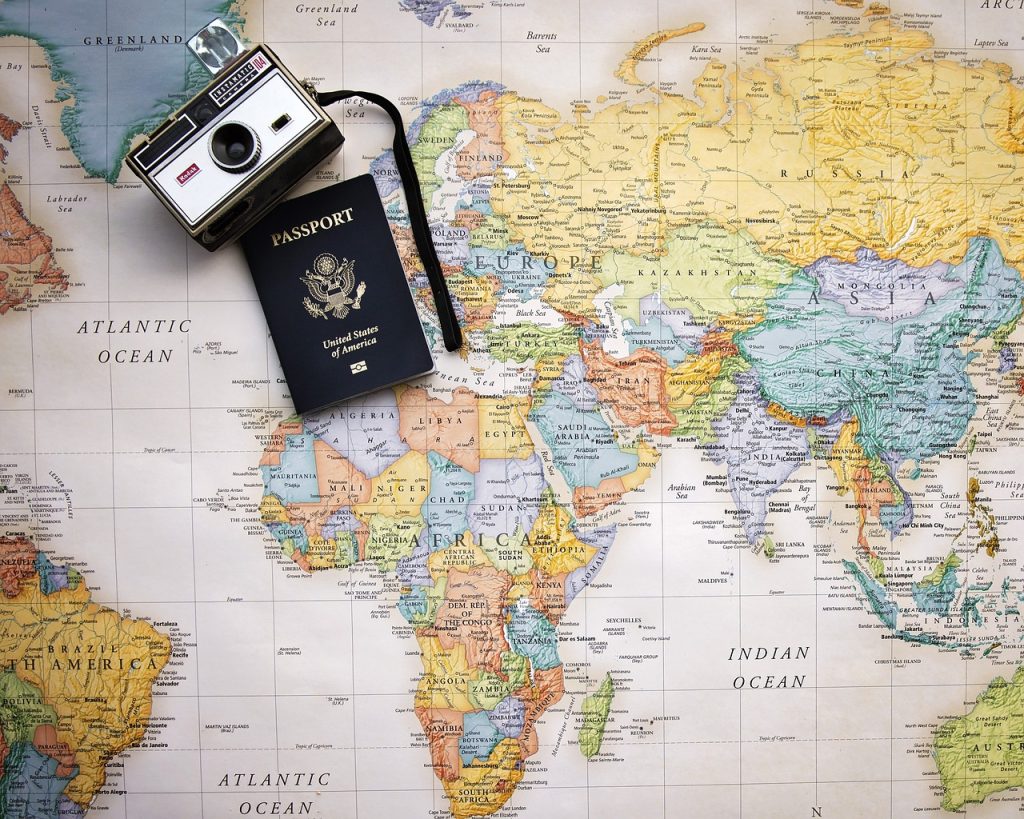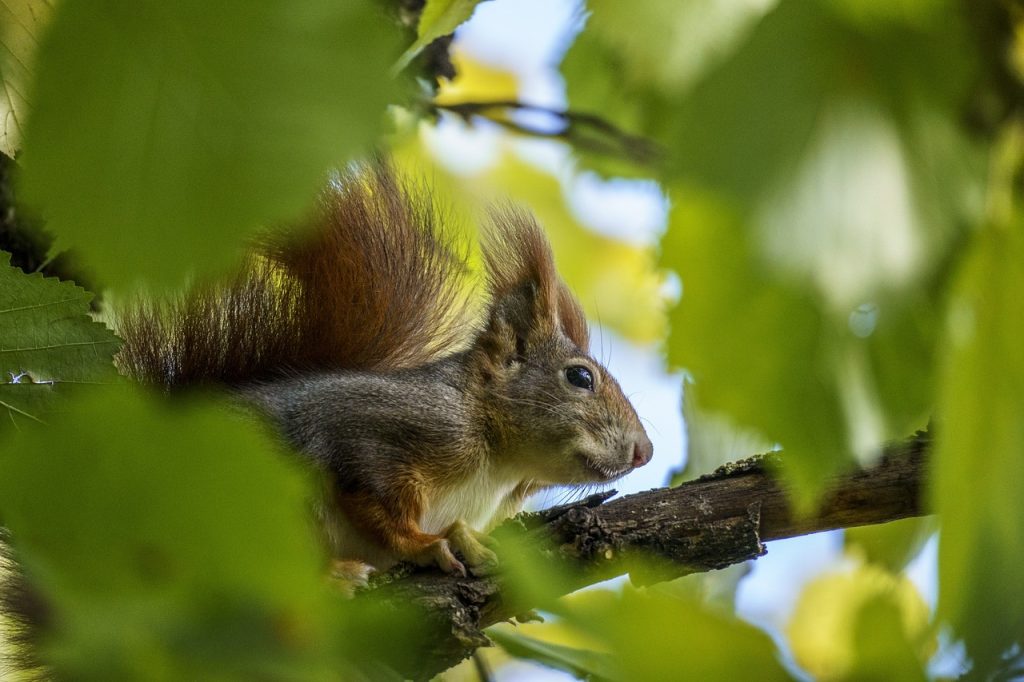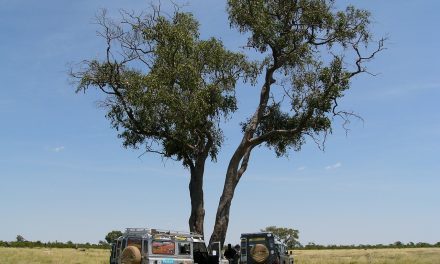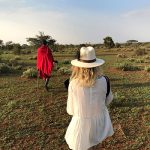If you’re an adventure enthusiast who loves exploring the beautiful wildlife of Africa, then this article is for you. Africa is renowned for its iconic animals and breathtaking landscapes, but it’s important to approach wildlife tourism responsibly. In this article, we’ll provide you with essential tips and guidance on how to minimize the impact of your adventures across Africa. From choosing ethical tour operators to respecting wildlife habitats, we’ll help you ensure that your love for wildlife doesn’t harm the very creatures you admire. So let’s dive in and discover how you can become a responsible wildlife tourist in Africa. Africa is home to some of the most diverse and majestic wildlife populations on the planet. From the big five to unique species found nowhere else, encountering these creatures in their natural habitats is a dream for many. However, it is essential to approach wildlife tourism responsibly to ensure the protection and preservation of these animals and their habitats. In this article, we will explore various ways you can minimize your impact and promote ethical practices while enjoying Africa’s incredible wildlife.
Choose Ethical Tour Operators
When planning your wildlife adventure in Africa, it is crucial to research and select tour operators that prioritize animal welfare. Look for organizations that have a strong commitment to sustainable and ethical practices. Many reputable tour operators actively support wildlife conservation initiatives and work closely with local communities. By choosing these operators, you can ensure that your tourism activities have a positive impact on both the wildlife and the people who call these regions home.
Additionally, consider looking for tour operators that hold certifications or accreditations. These certifications may include recognition for following guidelines that prioritize animal welfare, conservation efforts, and community involvement. Examples of certifications you can look for include Responsible Tourism Accreditation and Fair Trade Tourism certification. Supporting tour operators with these certifications ensures that your experience aligns with responsible and sustainable tourism practices.
Avoid Interacting with Wild Animals
While it can be tempting to get close to wildlife, it is essential to remember that these animals are not pets or entertainers. Interacting with wild animals can disrupt their natural behavior and cause stress or harm both to the animals and yourself. To minimize your impact, it is crucial to follow these guidelines:
- Do not touch or feed wild animals: Feeding wild animals alters their natural foraging behaviors and can lead to dependency on humans for food. It can also put the animals at risk of exposure to diseases or becoming aggressive towards humans.
- Keep a safe distance: Observe wildlife from a proper distance to avoid causing stress or disruption to their daily routines. Respect their natural behaviors and allow them the space they need to thrive without interference.
- Respect natural behavior: Remember that wildlife should be observed, not disturbed or manipulated for your entertainment. Enjoy watching their natural behaviors, such as hunting, mating, or caring for their young, from a distance without interfering or altering their natural environment.
By avoiding unnecessary interaction with wild animals, you ensure that their habitats and behaviors remain intact, contributing to their long-term conservation.

Support Conservation Projects
To make a tangible difference in wildlife conservation efforts, consider supporting reputable wildlife conservation initiatives financially. Many organizations work tirelessly to protect endangered species, preserve habitats, and raise awareness about the importance of wildlife conservation. Donating to these initiatives provides vital resources for their work and allows them to continue making a positive impact.
Additionally, if you have the time and resources, volunteering with local conservation organizations can be an incredibly rewarding experience. These organizations often rely on volunteers to assist with research, conservation projects, and community outreach. By getting involved directly, you not only contribute to the active protection of wildlife but also gain a deeper understanding of the challenges they face and the efforts required for their preservation.
Participating in sustainable conservation programs is another way to support wildlife conservation. These programs often combine eco-tourism experiences with hands-on involvement in conservation initiatives. By joining these programs, you contribute to the preservation of wildlife while learning about and appreciating their natural environments.
Respect Wildlife Habitats
When exploring wildlife habitats, it is crucial to minimize your impact to ensure that these areas remain pristine for future generations. Here are some essential guidelines to follow:
- Stay on designated paths or roads: Stick to designated paths or roads while exploring wildlife habitats to minimize disturbance and prevent damage to vegetation and fragile ecosystems.
- Avoid damaging vegetation or disrupting animal habitats: Be mindful of your surroundings and avoid trampling vegetation, tampering with natural features, or collecting plants or animals as souvenirs.
- Dispose of waste properly: Carry a small trash bag with you and ensure that all waste, including food scraps, is properly disposed of in designated receptacles. Leaving waste behind can attract animals to areas where they shouldn’t be and disrupt their natural behavior.
By respecting wildlife habitats, you can contribute to the overall health and well-being of the ecosystems while enjoying your wildlife encounters responsibly.

Pack Responsibly
Being mindful of the items you pack for your wildlife adventure is an essential aspect of responsible tourism. Here are some ways to pack responsibly:
- Use eco-friendly and biodegradable products: Opt for eco-friendly and biodegradable options for personal care products such as shampoo, soap, and sunscreen. These products are less harmful to the environment and wildlife.
- Limit single-use plastics: Reduce your environmental impact by minimizing the use of single-use plastics such as water bottles, cutlery, and shopping bags. Instead, pack reusable alternatives that you can refill or wash between uses.
- Pack reusable water bottles and containers: Carry reusable water bottles and containers to reduce the consumption of single-use plastics. Many accommodations and tour operators provide safe water refill stations, so you can stay hydrated while minimizing your environmental impact.
By being conscious of the products you pack, you can minimize waste and help protect the pristine environments you will be visiting during your wildlife adventure.
Choose Responsible Accommodations
When selecting accommodations for your African wildlife experience, it is important to choose establishments that prioritize sustainability and conservation. Look for lodges or camps that have implemented eco-friendly practices and demonstrate a commitment to minimizing their environmental footprint. Some features to consider include:
- Eco-friendly and sustainable practices: Seek accommodations that have incorporated environmentally friendly practices such as using renewable energy sources, water conservation measures, and waste reduction strategies.
- Conservation efforts: Research accommodations that actively support wildlife conservation projects or contribute to local conservation initiatives. By staying at these establishments, you can directly support their conservation efforts and contribute to the protection of wildlife and their habitats.
By staying in responsible accommodations, you can have a comfortable and enjoyable experience while knowing that your tourism activities have a positive impact on the environment and local communities.

Educate Yourself about the Wildlife
One of the most effective ways to minimize your impact on wildlife is to educate yourself about their behaviors, habitats, and the impact of human interaction. By increasing your knowledge, you can make informed decisions about your actions and contribute to the preservation of these incredible creatures. Here are some steps to take:
- Learn about the animals’ natural behavior and habitats: Familiarize yourself with the species you are likely to encounter by reading guidebooks, watching documentaries, or attending educational talks. Understanding their natural behaviors and habitats allows you to appreciate and respect them without disruption.
- Understand the impact of human interaction on wildlife: Research the ways in which human interaction can impact wildlife, both positively and negatively. This awareness will help you make responsible choices during your wildlife encounters.
- Recognize the importance of conservation and protection: Develop an understanding of the importance of wildlife conservation and what is being done to protect these species. By recognizing the value of preservation, you can advocate for responsible wildlife tourism and spread awareness among others.
By educating yourself about the wildlife you are going to encounter, you can foster a greater appreciation for their existence and contribute to their protection through responsible behavior.
Support Local Communities
Responsible wildlife tourism goes beyond protecting animals and their habitats. It also involves supporting the local communities that live alongside these wildlife-rich areas. Here are some ways you can support local communities during your African wildlife adventure:
- Choose tour operators and accommodations that benefit local communities: Look for operators and accommodations that have a strong commitment to supporting local communities through job creation, fair wages, and community development initiatives.
- Buy souvenirs and services from local artisans and organizations: Purchase souvenirs from local artisans or visit community-based organizations that promote sustainable and ethical practices. This ensures that your money goes directly to the community while supporting traditional crafts and cultural preservation.
- Respect local customs and traditions: Before visiting local communities, familiarize yourself with their customs and traditions. Respect their way of life and follow any guidelines provided by your tour operator or guide.
By supporting local communities, you contribute to sustainable economic development, foster cultural preservation, and enhance the overall well-being of local residents.
Follow Responsible Photography Practices
Photography is a fantastic way to capture the beauty of wildlife, but it is important to do so responsibly. Here are some guidelines to follow when photographing wildlife:
- Minimize disturbance by using zoom lenses instead of getting too close: Instead of approaching wildlife too closely, use a zoom lens to capture detailed photographs while respecting their space and maintaining a safe distance.
- Avoid using flash photography that can startle or disorient animals: Flash photography can disturb wildlife, especially in low-light conditions. To minimize disruption, disable the flash on your camera and use natural lighting whenever possible.
- Do not manipulate the wildlife or their surroundings for a better shot: Never manipulate wildlife or their surroundings to create a better photograph. This includes disturbing their habitat, baiting animals, or interfering with their natural behaviors. Respect their right to exist undisturbed.
By following responsible photography practices, you can document your wildlife encounters while ensuring the welfare and conservation of the animals you photograph.
Choose Seasonally Responsible Activities
When planning your African wildlife adventure, it is crucial to consider the seasons and the impact of your activities on wildlife during specific times of the year. Here are a few examples to keep in mind:
- Avoid activities that disrupt breeding or nesting seasons: Some wildlife species have specific breeding or nesting seasons, during which disruptions can have severe consequences. Familiarize yourself with the local wildlife calendar and avoid activities that could interfere with these critical periods.
- Respect migration patterns and animal life cycles: Migration is a key natural phenomenon for many African wildlife species. Be mindful of migration routes and patterns, and avoid activities that impede or disrupt these movements.
- Follow guidelines for responsible wildlife encounters during specific seasons: Different species may have specific guidelines or restrictions during certain times of the year. Adhere to these recommendations, which are typically in place to protect the animals and their habitats.
By choosing seasonally responsible activities, you contribute to the conservation of wildlife populations and respect their natural life cycles.
In conclusion, responsible wildlife tourism in Africa requires a conscious effort to minimize your impact on the animals, their habitats, and the local communities. By choosing ethical tour operators, avoiding unnecessary interaction with wild animals, supporting conservation projects, respecting wildlife habitats, packing responsibly, choosing responsible accommodations, educating yourself about the wildlife, supporting local communities, following responsible photography practices, and selecting seasonally responsible activities, you can have a memorable and fulfilling wildlife experience while making a positive difference. Let us all work together to ensure the preservation of Africa’s incredible wildlife for generations to come.












